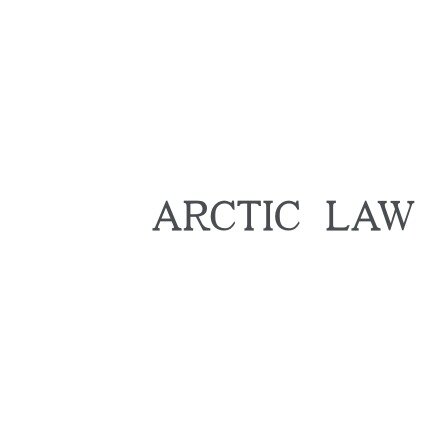Best Climate Change Law Lawyers in Nuuk
Share your needs with us, get contacted by law firms.
Free. Takes 2 min.
List of the best lawyers in Nuuk, Greenland
About Climate Change Law in Nuuk, Greenland
Climate Change Law in Nuuk, Greenland refers to the collection of legal principles, regulations, and policies that address the causes and impacts of climate change in this unique Arctic region. As the capital of Greenland, Nuuk is at the forefront of both experiencing and mitigating climate change effects such as permafrost thaw, rising sea levels, and changes to traditional ways of life. Local and national legal frameworks aim to balance environmental protection, sustainable economic development, and respect for Indigenous rights.
Why You May Need a Lawyer
People in Nuuk may need legal assistance with Climate Change Law for many reasons. Common situations include disputes over environmental permits, interpretation of land use regulations, enforcement of pollution controls, and challenges relating to development projects in sensitive ecosystems. Individuals, businesses, and Indigenous communities may also require help navigating compliance with new international agreements or national policies on emissions reduction, or seeking advice on renewable energy projects. Additionally, climate impacts can affect property rights, traditional hunting and fishing access, and infrastructure resilience, all of which may require legal expertise.
Local Laws Overview
Greenland is part of the Kingdom of Denmark but has its own government and legislative powers (Kalaallit Nunaata Inatsisartut). Climate Change Law in Nuuk encompasses local acts on environmental protection, land use, and sustainable development. Key legislation includes the Environmental Protection Act and the Mineral Resources Act, both of which incorporate climate considerations. Regulations exist to govern emissions from industrial activities, oversee renewable energy initiatives, and safeguard critical habitats. Local policies often align with international agreements such as the Paris Agreement and the Arctic Council’s guidelines, which Greenland participates in. For businesses and residents, compliance with these local laws is essential when engaging in activities that may impact the climate.
Frequently Asked Questions
What is Climate Change Law in Greenland?
Climate Change Law in Greenland is a body of rules and policies aimed at regulating the causes and effects of climate change through environmental protection, emission control, sustainable development, and climate adaptation measures.
How does climate change affect legal regulations in Nuuk?
Climate change leads to new and updated regulations in Nuuk regarding construction, land use, and resource extraction to ensure resilience against rising sea levels, thawing permafrost, and impacts on traditional ways of life.
Who enforces Climate Change Law in Nuuk?
The Government of Greenland, particularly the Ministry of Nature and Environment, is responsible for enforcing climate-related laws, supported by municipal authorities in Nuuk and other national agencies.
Do I need special permits for climate-related projects?
Yes, many activities that impact the environment, such as infrastructure development, mining, or large-scale fishing, require permits that take climate impacts into account as part of the approval process.
Can Indigenous and local communities influence climate policy?
Indigenous and local communities in Greenland have the right to be consulted and may participate in decision-making about land use, resource extraction, and other policies that affect their traditional lands and practices.
What are the penalties for violating climate laws?
Penalties for violating climate or environmental law in Nuuk can include fines, orders to restore damaged environments, loss of permits, and in severe cases, criminal charges depending on the infraction.
How are international agreements applied in Greenland?
Greenland applies many international climate agreements through its own legislation and policies, integrating standards set by agreements like the Paris Agreement into local law and regulation.
What role do courts play in climate change issues?
Courts in Greenland can resolve disputes involving climate-related regulations, such as challenges to permits, environmental damage claims, and questions about the interpretation of relevant laws.
Can I get legal help with renewable energy projects?
Yes, legal experts in Nuuk can assist with regulatory compliance, permit applications, land use questions, and contracts related to solar, wind, and hydropower projects.
Where can I report a violation of climate laws?
Suspected violations can be reported to the Ministry of Nature and Environment, municipal authorities in Nuuk, or, in some cases, the local police if there is a breach of criminal law.
Additional Resources
- The Ministry of Nature and Environment of Greenland: Responsible for environmental and climate regulation. - The Danish Institute for Human Rights: Offers research and support on climate change impact on Indigenous and human rights. - Arctic Council: Provides reports and guidance on sustainable development in Arctic regions. - Local legal aid offices in Nuuk: Offer counseling on environmental and climate law matters. - Nuuk Municipal Authorities: Can provide guidance on local regulations and permitting processes.
Next Steps
If you need legal assistance in Climate Change Law in Nuuk, start by identifying your specific legal issue, such as permit problems or questions about regulatory compliance. Collect all relevant documents and correspondence relating to your issue. Reach out to a local lawyer with experience in environmental and climate matters, or seek preliminary advice from local legal aid services. You may also wish to contact relevant government departments for guidance on applications or reporting violations. Always act promptly, as delays can make resolving legal issues more difficult or limit your options for remedies.
Lawzana helps you find the best lawyers and law firms in Nuuk through a curated and pre-screened list of qualified legal professionals. Our platform offers rankings and detailed profiles of attorneys and law firms, allowing you to compare based on practice areas, including Climate Change Law, experience, and client feedback.
Each profile includes a description of the firm's areas of practice, client reviews, team members and partners, year of establishment, spoken languages, office locations, contact information, social media presence, and any published articles or resources. Most firms on our platform speak English and are experienced in both local and international legal matters.
Get a quote from top-rated law firms in Nuuk, Greenland — quickly, securely, and without unnecessary hassle.
Disclaimer:
The information provided on this page is for general informational purposes only and does not constitute legal advice. While we strive to ensure the accuracy and relevance of the content, legal information may change over time, and interpretations of the law can vary. You should always consult with a qualified legal professional for advice specific to your situation.
We disclaim all liability for actions taken or not taken based on the content of this page. If you believe any information is incorrect or outdated, please contact us, and we will review and update it where appropriate.











